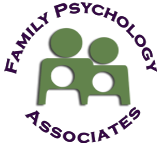Eating Disorders: A Spectrum Illness
According to US estimates from The National Institute of Mental Health, between 5 per cent and 10 per cent of girls and women (i.e. 5-10 million people) and 1 million boys and men suffer from eating disorders, including anorexia, bulimia, binge eating disorder, or other associated dietary conditions. Estimates suggest that as many as 15 percent of young women adopt unhealthy attitudes and behaviors about food. Amongst psychological disorders, they are the most deadly. A common misconception is that eating disorders are about weight, shape, size, and food. Actually, they are not at all about any of these. Instead, these things are only what is visible and the underlying development of eating disorders is related to much deeper rooted factors. Eating disorders are a spectrum illness meaning that the different types of diagnoses exist along a continuum. Eating disorder like behavior occurs as part of a spectrum of self destructive acts. There are different degrees of severity and varying phases of the illness and recovery process.
These illnesses affect one’s psychological and biological well being and unless appropriately diagnosed and treated, the illness cycle can continue to affect every aspect of a person’s life. Treatment needs to focus on the care and feeding not only of the body and mind, but also of one’s soul.
If you or someone you know is struggling with any of these issues, it is essential to ask for help from an appropriate professional. The treatment and recovery of eating disorders needs to be multidimensional including nutritional rehabilitation, symptom management, cognitive behavioral therapy, and psychotherapy to discover the function that the bingeing, starving, or purging is fulfilling. Despite much debate, it is possible for someone with an eating disorder to recover!
Discussed below are descriptions of the various diagnoses along this spectrum of illnesses.
ANOREXIA NERVOSA
The term Anorexia comes from Greek origin (privation, lack of) anorexia (appetite). This means a lack of a desire to eat but this term is not sufficient to describe the illness. The addition of the word Nervosa describes the condition more completely (lack of desire to eat due to a mental condition). Persons with this disorder struggle with much more than loosing their appetites, they actually have a longing desire to eat. Some often give in to their rigid behaviors and eat with no control as a result of being starved. Eventually a person with Anorexia may actually lack their appetite because their body has become so confused through the restricting, possible binging and purging. Despite not feeling hungry, the mind sends constant impulses to eat because starvation is against what the normal body instincts are. Most clearly stated, this syndrome is due to a psychological disturbance where food is the outer expression of the problem. A person believes that they are in control if they are thin. Anorexia is the most rare of eating disorders and also the most deadly. Many anorexics develop bulimia nervosa at some point because of the body’s inability to maintain starvation that is self induced.
BULIMIA NERVOSA
The term bulimia comes from Latin and means “hunger of an ox.” People with this diagnosis often have tried to control their weight by restricting their food and have been unable to do so. The result is bingeing and then purging out of a fear that they will gain weight from the binge. Bulimics are usually at or above a normal weight but still try to restrict their intake to keep a weight that is too low to maintain. A key feature of this illness is that although it appears to be about dieting and weight control end up becoming a way to regulate one’s feelings of anxiety and depression. The act of purging can become addictive. Bulimics are often more ashamed of their illness and because they have such a sense of being out of control, they usually come into treatment more willing than anorexics to end the behaviors.
BINGE EATING DISORDER
This disorder is comprised of individuals who binge on large amounts of food with no efforts to compensate for their excessive intake of calories. BED is usually associated with people who are overweight and/or obese but is not limited to this population. The eating is often associated with a specific triggering event and usually followed by self loathing and physical discomfort. The health consequences are also critical for this illness and the behaviors are debilitating in terms of the likelihood of social isolation and guilt that are often associated with these behaviors. At this point the knowledge about the psychosocial risk factors is still limited and further research needs to be done to understand the factors associated with the development of the illness.
When dealing with these illnesses it is clearly necessary for the person to receive the appropriate medical and therapeutic care. Although they can be a life long struggle it is so important to understand that an individual with one of these diagnoses can recover. The road to recovery is usually long but extremely worthwhile. The personality traits that may have led a person into an eating disorder are also the traits that can be used as the willpower to recover and lead a productive and fulfilling life.
Filed Under: Helpful Articles
